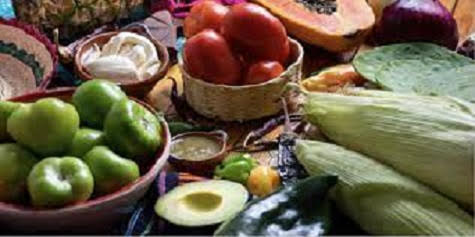By TR Robertson
There are hundreds of books, countless articles on the internet and scores of products being sold that detail ways to ensure that you will have a long and healthy life. In two recent online articles, one by Stacey Leasca and one by Dan Buettner, their premise is a long life can be attributed to where you live, the amount of exercise you get, your personal habits and lifestyle, and your diet. Good genes also play a part helping assure you will live into your 80s, 90s and beyond.
Both articles refer to five places in the world where people live an exceptionally long time, many into their 100s. The term “Blue Zones”, so named by Dan Buettner, is used to refer to places like the Nicoya Peninsula in Costa Rica, Loma Linda in California, Okinawa in Japan, Sardinia in Italy and Ikaria in Greece.
Sardinia, Italy – Buettner identified Sardinia as a Blue Zone location in 2004. He said researchers found a “rare genetic quirk” that many inhabitants had that might play a part in establishing longevity of the residents. But residents of Sardinia are also known for an active lifestyle, obtaining food through hunting and fishing and growing much of their own produce. Their diet consists of goat’s milk, almonds, pecorino cheese, barley and grains for whole grain bread, fruits and garden vegetables like fava beans, and mastic oil. The townspeople are also known for a strong sense of community, gathering to share stories, laugh and drink locally made wine.
Okinawa, Japan – The people of Okinawa are known for consuming a largely plant-based diet consisting of sweet potatoes, tofu, soybeans, and fresh vegetables. It is reported that they have extremely low rates of cancer, heart disease and dementia. Pork is their meat of choice, especially used for special occasions. Okinawans are said to have a strong sense of purpose and social ties. The February issue of National Geographic has an article, “A New Old Age” by Sarah Lubman, discussing the increasing older population in Japan and giving numerous examples of older Japanese individuals either re-entering the work force as viable employees or finding new ways to remain active.
Nicoya, Costa Rica – Leasca referred to Costa Ricans having a saying that everyone should live a life of “Pura Vida” or “Pure Life”. Their diet has remained a traditional Mesoamerica diet consisting mainly of starchy plant foods like black beans, corn, and squash. They also eat a lot of pistachios. They also consume fewer calories, highlighted by a light dinner eaten in the evening. Costa Ricans are also known for their strong ties to friends and family.
Ikaria, Greece – The Mediterranean diet is key for this island built around fruits and vegetables, almonds, with small portions of meat and seafood. Strong red wine is also a staple for these citizens. One in three residents of Ikaria live into their 90s. This island is also built around strong social ties, a relaxed lifestyle enjoying life outside in a climate surrounded with clean-air and warm Mediterranean breezes.
Loma Linda, California – This California town is comprised of a tight knit Seventh Day Adventist community that follows a strict vegetarian diet, a love of exercise, and shunning caffeine and alcohol. The community has a strong sense of volunteerism, encouraging people of all ages to stay active and help others. Leasca said this leads to them finding “sense of purpose and stave off depression by focusing on helping others.”
From what you can see in looking at these five locations in the world where diet, exercise, finding purpose in life, getting outdoors, close family and friends relationships can all play a role in leading to a longer life. As has been stated, a strong genetic background for longer life also helps. Research has suggested that genetics will account for 25% of a person’s life span. Physical activity has also shown that simple exercise will help, regardless of age. This can be gardening, moderate exercise, walking, or some type of social activity.

Dan Buettner has spent years studying “Blue Zone” locations around the world. He has suggested the following principles to help you, regardless of where you live.
– “Eat a cup of beans, peas or lentils every day.” – Buettner said one cup of beans everyday gives you all the daily fiber you will need.
– “Eat a handful of nuts daily.” – One JAMA Internal Medicine study showed those who ate nuts more than four times per week were 51% less likely to suffer a heart attack and 48% less likely to die of heart disease.
-“Eat breakfast like a king, lunch like a prince and dinner like a pauper.” – People in Blue Zones tend to eat most of their calories earlier in the day. Okinawans traditionally eat a big breakfast, a moderate lunch, and no dinner. One study showed Seventh Day Adventists ate breakfast later in the morning and lunch later in the afternoon with no dinner. The most efficient metabolizing of meals comes in the morning and early afternoon.
– “Eat meals with your family.” – In Blue Zones, studies showed it was common for families to eat at least one daily meal together, typically the midday or last meal of the day. Buettner said, “Families that eat together tend to eat much more nutritiously, they eat slower, and there’s good research that children have fewer issues with disordered eating if they’re eating socially.” Studies have also shown that married couples who prioritize family meals report higher levels of marital satisfaction. Also, more fruits and vegetables are consumed with family meals.
We can’t all live in Blue Zones and there is no one way to assure you will have a longer life, but there is certainly a series of things you can do to help yourself and your family members. It doesn’t hurt to try and incorporate some of these suggestions for a longer life into your daily lifestyle. One Okinawan said to Dan Buettner, “Eat your vegetables, have a positive outlook, be kind to people, and smile.” Fumie Takino, a 90-year-old member of a senior cheer squad in Tokyo, may have said it best, ‘It is important to be yourself and do what you want to do regardless of your age.” (Quote from “A New Old Age” by Sarah Lubman in Feb. National Geographic). What a simple way to start to make changes in your life.



















